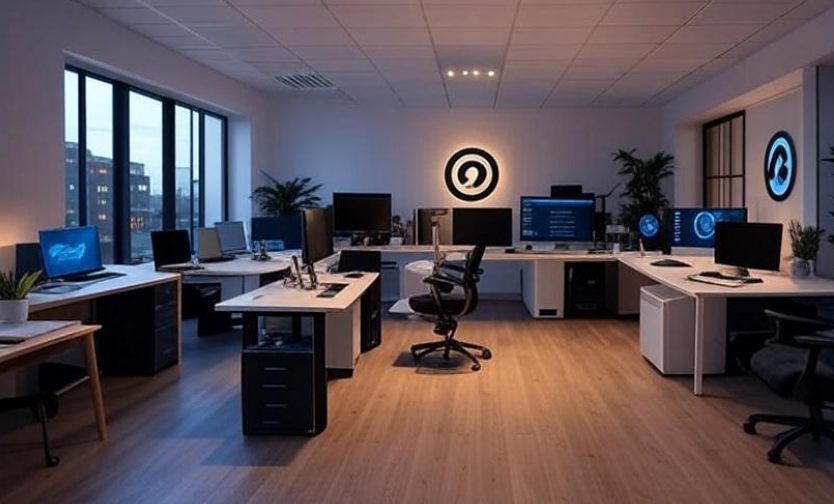Ireland has quietly built itself into one of Europe’s biggest hubs for technology careers. If you’ve ever thought about working in the tech world but aren’t sure how to start, Ireland might surprise you with the amount of opportunity it offers. From software development to cybersecurity and even remote-friendly jobs, there’s a lot happening here. Let’s break it down in plain and simple words so you know where to begin.
Why Ireland is attracting tech workers
Over the last 20 years, Ireland has turned into a European base for big names like Google, Apple, Facebook (Meta), Microsoft, and Amazon. The country offers low corporate tax rates, has a skilled workforce, and being part of the EU makes it easier for companies to hire talent from across the world.
But it’s not just the giants—many startups, gaming studios, fintech firms, and healthcare tech companies are thriving in cities like Dublin, Cork, and Galway. For someone new, this means you’re not just limited to one kind of job; there’s variety and growth potential.
What kind of tech jobs are available
Ireland’s tech industry is broad. You don’t need to be a coding genius to fit in. Let’s look at some of the most common roles:
| Job Role | What You Do | Entry Path |
|---|---|---|
| Software Developer | Build apps, websites, systems | Degree or coding bootcamps |
| Data Analyst | Work with numbers, reports, insights | Data tools like Excel, SQL, Python |
| Cybersecurity Specialist | Protect systems from hackers | Security certifications (CompTIA, CISSP) |
| Cloud Engineer | Manage cloud systems (AWS, Azure) | Cloud certifications |
| IT Support / Helpdesk | Troubleshoot hardware/software issues | Basic IT skills, diplomas |
| UX/UI Designer | Design user-friendly interfaces | Creative + design tools (Figma, Adobe XD) |
The best part? Many of these roles allow hybrid or remote setups, giving you more flexibility.
Where to actually start your journey
Okay, so you know the jobs exist. But how do you start if you’re a student, a recent graduate, or even switching careers?
-
Learn basic digital skills – If you’re completely new, begin with free resources like Coursera, Google Digital Garage, or YouTube tutorials. Even basic coding (HTML, CSS, Python) can give you an edge.
-
Certifications matter – In Ireland, many companies value practical certifications. If you can show an AWS Cloud Certificate, a CompTIA Security+ badge, or a Google Analytics certificate, you’ll stand out more than someone with just a degree.
-
Use Irish job platforms – Websites like IrishJobs.ie, Jobs.ie, LinkedIn Ireland, and GradIreland are full of tech roles. Many firms even run graduate programs to train you from scratch.
-
Networking counts – Attend meetups in Dublin or Cork, join tech communities on Slack/Discord, or even go to career fairs. Sometimes, who you know matters as much as what you know.
-
Internships and entry-level roles – Even if it’s IT support or a junior developer job, grab the chance. Once you’re inside, growth is much easier.
Top cities for tech jobs in Ireland
Ireland’s tech opportunities are not spread equally. Some cities are far better for newcomers.
| City | Why it’s great for tech jobs |
|---|---|
| Dublin | HQ for Google, Meta, LinkedIn, Amazon – huge demand |
| Cork | Apple’s European HQ, plus pharma + tech mix |
| Galway | Medical tech and gaming startups |
| Limerick | Smaller, but growing with software firms |
| Waterford | Emerging hub with some IT service companies |
👉 Pro tip: While Dublin has the most opportunities, it’s also expensive to live in. Cork or Galway can be more budget-friendly while still offering solid tech careers.
Skills Irish employers look for
It’s not just about coding. Companies in Ireland value soft skills just as much as technical knowledge. Things like:
-
Problem-solving
-
Team communication
-
Adaptability (especially for startups)
-
Willingness to keep learning
-
Creativity in designing solutions
For technical skills, the top ones in demand right now include:
-
Python, Java, C#
-
SQL and data visualization tools
-
Cybersecurity basics
-
Cloud platforms (AWS, Azure, Google Cloud)
-
Agile project management
Expected salaries for tech roles
Of course, money matters. Tech jobs in Ireland pay well compared to many other sectors. Here’s an approximate range (can vary with experience and company size):
| Job Role | Average Salary (per year) |
|---|---|
| Junior Software Developer | €30,000 – €45,000 |
| Mid-level Developer | €50,000 – €65,000 |
| Senior Developer | €70,000 – €90,000 |
| Data Analyst | €35,000 – €55,000 |
| Cybersecurity Specialist | €45,000 – €75,000 |
| Cloud Engineer | €50,000 – €80,000 |
| IT Support | €28,000 – €40,000 |
With experience, salaries rise quickly. And since many Irish companies are international, pay packages often include perks like health insurance, pension plans, and even stock options.

Challenges you should know about
It’s not all sunshine 🌞. Tech jobs in Ireland come with a few challenges:
-
Competition is high – Especially in Dublin, roles can get hundreds of applicants.
-
Cost of living – Rent in Dublin is expensive. Plan your budget.
-
Fast-changing skills – Tech moves quickly; you’ll need to keep learning constantly.
-
Visa requirements – Non-EU citizens often need a work visa. Luckily, Ireland has a Critical Skills Employment Permit for in-demand jobs (like IT and engineering).
Step-by-step action plan if you want to start today
-
Choose one tech field that excites you (software, design, security, data).
-
Spend 2–3 months learning the basics (online free courses, bootcamps, or diplomas).
-
Build a small project (a website, a portfolio, a simple app).
-
Update your LinkedIn profile to showcase skills.
-
Apply for internships or junior roles on Irish job boards.
-
Keep upgrading skills every few months with short certifications.
Even small consistent steps will set you apart within a year.
FAQs about tech jobs in Ireland
Q: Do I need a degree to get a tech job in Ireland?
Not always. Many employers care more about skills and certifications. However, a degree can help for certain roles.
Q: Can international students work in tech in Ireland?
Yes. Students can work part-time during studies and apply for graduate work permits after finishing degrees.
Q: What if I don’t know coding?
That’s okay. You can try non-coding roles like UX design, IT support, digital marketing, or data analysis.
Q: Is remote work possible?
Yes, especially after COVID-19. Many companies now allow hybrid or full remote setups.
Q: How long does it take to get into tech?
If you’re consistent, you can become job-ready in 6–12 months for entry-level roles.
Final thoughts
Starting a tech career in Ireland may feel overwhelming at first, but the country is full of opportunities if you’re willing to take the first step. Whether you’re aiming for a big company in Dublin or a growing startup in Galway, there’s a place for beginners. Keep learning, stay flexible, and remember that every expert in Ireland’s tech industry was once a beginner too. 🚀




